
Phone: 86-10-62782882
Email: pengmin@tsinghua.edu.cn
Min Peng, Ph.D.

Education:
2000-2005 B.M., Clinical Medicine
West China Medical Center, Sichuan University, Sichuan
2005-2010 Ph.D., Immunology
Peking Union Medical College, Beijing
Employment:
2010-2014 Research Fellow
Immunology Program, Memorial Sloan Kettering Cancer Center, New York, United States
2014-2017 Research Associate
Immunology Program, Memorial Sloan Kettering Cancer Center, New York, NY, United States
2017-present Assistant Professor
School of Medicine, Tsinghua University, Beijing, China
2017-present Principal Investigator
Institute for Immunology, Tsinghua University, Beijing, China
2017-present, Principal Investigator
Center for Life Sciences, Beijing, China
Honors & awards:
2019 Outstanding Young Scholar Award, Qiu-Shi Science & Technologies Foundation
2018 Bayer Scholar
2018 Awardee of National 1000 Talent Program
2015 Postdoctoral Researcher Award, Memorial Sloan Kettering Cancer Center
Post-Docs
Lixia Wang, Ph.D.
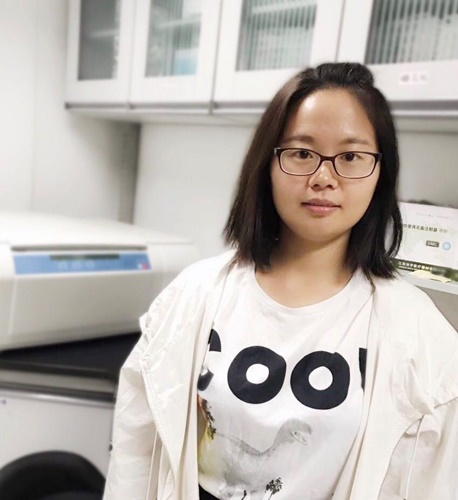
Lixia Wang received her Ph.D. degree from University of Chinese Academy of Sciences in 2018, then joined Min Peng’s laboratory for post-doctoral research. Her research focuses on the genetic modification of chimeric antigen receptor (CAR) T cell for adoptive cancer immunotherapy.
Xiaocui Zhao, Ph.D.

Xiaocui Zhao obtained her Ph.D. degree in cell biology from Zhejiang University and joined in Peng lab in 2018. Her research mainly focuses on CAR-T therapy.
Qiuping Zhou, Ph.D.

Qiuping Zhou is from Guangxi Zhuang Autonomous Region, and joined in Peng's lab as a postdoc in May 2021, got her Doctor of Immunology at Shanghai Institute of Biochemistry and Cell Biology, Chinese Academy of Sciences, in January 2021. Her research focuses on CAR-T therapy.
Students
Ying Liu

Ying Liu joined Peng's laboratory as a Ph.D student in 2017,with a bachelor's degree from Sichuan University. She worked on projects about mTOR, T cell proliferation and Calcium signal successively during doctoral training.
Hanfei Zhao
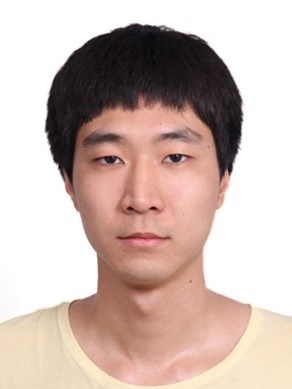
PhD student, his research focuses on Immunotherapeutic target discovery by genome-wide in vivo CRISPR screens in primary mouse T cells.
Guangyue Zhang

After graduated from School of Pharmaceutical Science, he joined the Lab of Dr. Min Peng at Institute of Immunology, Tsinghua University. During the Ph.D. training, Guangyue’s major research interest is the function, differentiation and fine-tuning co-receptor signaling in T cells. He is good at setting up and carrying out CRISPR based screening assays in both cell lines and primary T cells. Besides daily training, he is often playing tennis with friends as an amateur.
Gang Jin

Ph.D student (From2017) in PTN. Research focuses: Adoptive T cell therapy against cancer and autoimmune disease; Nutrient sensing pathway regulation of HSC function.
Yuying Ma
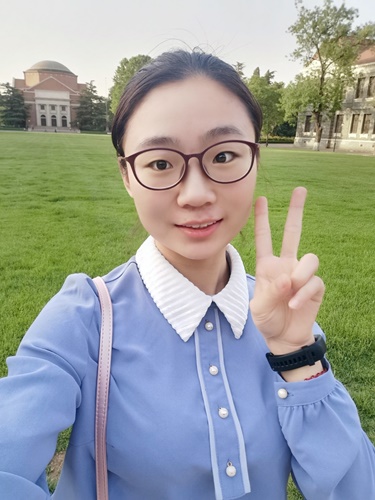
Yuying Ma, PhD student (since 2018) in School of Medicine, Bachelor’s degree from Wuhan University. Research focus: immune metabolism.
Jing Xu
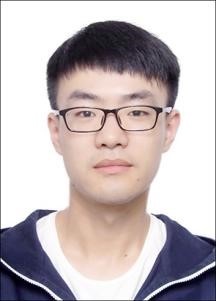
Jing Xu, PhD student (from 2018). Get his bachelor's degree from Soochow University. Currently, he mainly focuses on the research of calcium signaling in T cell biology and deciphers the role of calcium in T cell homeostasis.
Zihao He

He Zihao joined Peng's laboratory in 2019 as a PhD student. He has been dedicated to the research on genetic modification in Treg cells for adoptive cell transfer.
Qing Shang

Qing Shang joined Peng lab in September, 2020, for research training as part of her MD program. With an interest in immunometabolism and metabolism in general, she is now focusing on the role of short chain fatty acids in physiological and pathological settings.
Xiaonan Ma
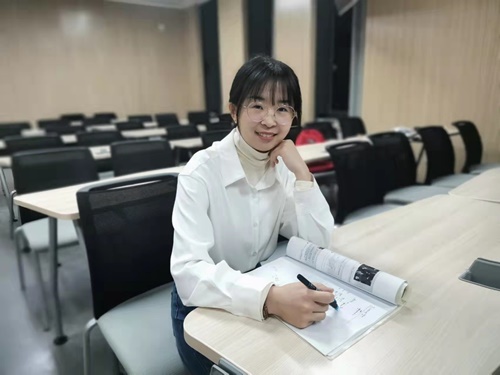
Xiaonan Ma, a PhD student (from 2020) in PTN. She obtained the bachelor degree in animal medicine from Jilin University. And her research interest is the mechanism of T cell memory formation.
Yun Yu
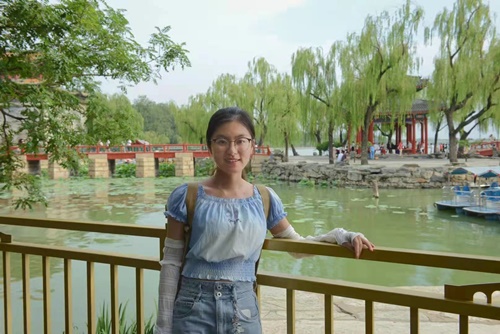
PhD student (since 2020) in Institute for Immunology of Tsinghua University. Received Bachlor's Degree (majored in Chemical Biology) from Xi'an Jiaotong University. Her research focuses on the interaction between CAR-T and the endogenous immune system. Likes photography.
Yanyan Liu
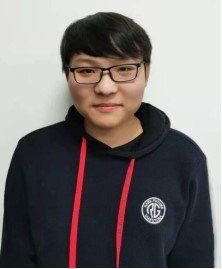
Yanyan Liu, a PhD student of class 2020, joined Peng Lab. after got his bachelor's degree from Sichuan University. Currently, he mainly focuses on the research of CAR-T targeted therapy. He is trying to change from a “naive” student to a “functional” and “productive” “effector” student.
Yibo Zheng

As a student of Doctor of Medicine (M.D.) major in Clinical Medicine, I joined the lab for the two-year scientific research training during my eight-year curriculum. My current research focuses on the functional genomics in primary T cells.
Research Interests:
T cells play essential roles in immune response. We are studying T cells with two directions:
1. Functional genomics in primary T cells
We are applying genome-wide CRISPR/Cas9 screen in primary T cell in vivo to answer fundamental questions in T cell biology, including development, activation, proliferation and differentiation, as well as T cell fitness (e.g. exhaustion) in tumor microenvironment. Identified novel genes and regulatory circuits have been used to design novel therapies for diseases.
2. Mechanisms of metabolic regulation of T cells
Metabolic reprogramming is a hallmark of T cell activation, but how metabolic pathways regulate T cell function remains poorly understood. We are using mouse models with gain- and loss-of-function of key metabolic enzymes to decipher metabolic regulation T cell, and try to target metabolism to treat immune-related diseases.
ORCID: 0000-0002-5885-0660
ResearcherID: O-3770-2017
Publications:
1. Hanfei Zhao, Ying Liu, Lixia Wang, Gang Jin, Xiaocui Zhao, Jing Xu, Guangyue Zhang, Yuying Ma, Na Yin, Min Peng. Genome-wide fitness gene identification reveals Roquin as a potent suppressor of CD8 T cell expansion and anti-tumor immunity. Cell Reports. 2021 Dec 7;37(10):110083.
2. Ke Xu*, Na Yin*, Min Peng, Efstathios G Stamatiades, Sagar Chhangawala, Amy Shyu, Peng Li, Xian Zhang, Mytrang H Do, Kristelle J Capistrano, Chun Chou, Christina S Leslie, Ming O Li. Glycolytic ATP fuels phosphoinositide 3-kinase signaling to support effector T helper 17 cell responses. Immunity. 2021. 54(5):976-87.
3. Ke Xu, Na Yin, Min Peng, Efstathios G Stamatiades, Amy Shyu, Peng Li, Xian Zhang, Mytrang H Do, Zhaoquan Wang, Kristelle J Capistrano, Chun Chou, Andrew G Levine, Alexander Y Rudensky, Ming O Li. Glycolysis fuels phosphoinositide 3-kinase signaling to bolster T cell immunity. Science. 2021.371(6527):405-10.
4. Min Peng, Na Yin, Ming O. Li. SZT2 dictates GATOR control of mTORC1 signaling. Nature. 2017 Mar 16;543(7645):433-437.
5. Min Peng*, Na Yin*, Sagar Chhangawala, Ke Xu, Christina S. Leslie, Ming O. Li. Aerobic glycolysis promotes T helper 1 cell differentiation through an epigenetic mechanism. Science, 2016 Oct 28; 354(6311): 481-484. *Equal contribution.
Preview in Science, 2016 Oct 28; 354(6311): 419-420. “Warburg meets epigenetics”.
Preview in Dev Cell, 2016 November 7;39: 286-287. “Metabolic Control of Cellular Differentiation”.
Preview in Cell Metab, 2016 November 8; 24: 651-652. “Metabolic Signaling Drives IFN-g”.
6. Jiangbin Ye, Wilhelm Palm, Min Peng, Bryan King, Tullia Lindsten, Ming O. Li, Constantinos Koumenis, Craig B. Thompson. GCN2 sustains mTORC1 suppression upon amino acid deprivation by inducing Sestrin2. Genes Dev. 2015 Nov 15; 29 (22): 2331-6.
7. Min Peng, Na Yin, Ming O. Li. Sestrins Function as Guanine Nucleotide Dissociation Inhibitors for Rag GTPases to Control mTORC1 Signaling. Cell. 2014 Sep 25; 159(1): 122-33. Highlighted in Nat Rev Mol Cell Biol, 2014; 15: 701, “A RAG dissociation inhibitor”.
8. Weiming Ouyang, Will Liao, Chong T. Luo, Na Yin, Morgan Huse, Myoungjoo V. Kim, Min Peng, Pamela Chan, Qian Ma, Yifan Mo, Dies Meijer, Keji Zhao, Alexander Y. Rudensky, Gurinder Atwal, Michael Q. Zhang, Ming O. Li. Novel Foxo1-dependent transcriptional programs control Treg cell function. Nature. 2012 Nov 22; 491(7425): 554 – 9

Copyright © 2017 Institute for Immunology Tsinghua University
Contact Address: Room D302, Medical Science Building, Tsinghua University, Beijing 100084, China
Tel: (86) 10-62776420 Fax: (86) 10-62776420
